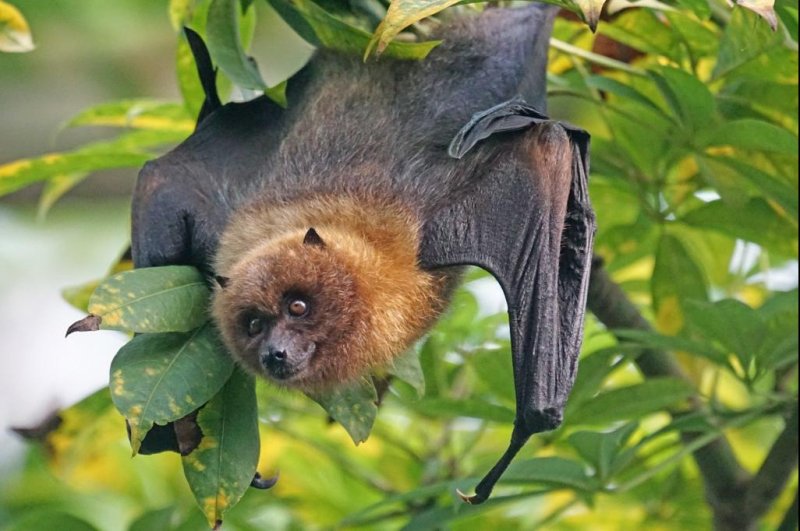Flying foxes remain threatened by dangerous culling plans on their native island home of Mauritius. Photo by CC/Wikimedia Commons
Nov. 12 (UPI) -- Officials in Mauritius are planning to cull flying foxes, the large bat species native to the small African island nation. Farmers blame the bat for commercial fruit losses, but scientists argue a cull is unnecessary and could spell the end for the endangered species.
According to a new study published in the journal Oryx, the Mauritian flying fox is only responsible for a small -- and manageable -- amount of fruit losses. Additionally, scientists determined the species performs a variety of vital ecological services.
The bat's pollination and seed dispersal services are essential to the health of the islands largest tree species and the growth of the nation's threatened forests.
Until now, researchers had not attempted to accurately measure the impact of the flying fox on commercial fruit yields. Nor had officials gauged the efficacy of alternative mitigation strategies.
Field experiments showed the bat is responsible for roughly a third of all commercial fruit losses. Birds and naturally falling fruit were responsible for a larger percentage of losses. Tests also showed nets can be used to reduce the impacts of flying foxes on fruit.
"Use of nets on fruiting trees can result in as much as a 23-fold reduction in the damage caused by bats if nets are applied correctly," researchers wrote in the newly published paper. "There is still a need to monitor orchards over several seasons and to test non-lethal bat deterrence methods more widely."
Scientists argue netting efforts would have a greater positive impact on fruit yields than a cull, which could irreversibly harm the island's threatened flying fox population.
"Further culling is clearly unnecessary, and hopefully the vital ecological roles played by these remarkable and endangered animals can be encouraged and enhanced in the future," Ryszard Oleksy, the study's lead researcher and a former PhD student at the University of Bristol, said in a news release.
Thousands of flying foxes are killed illegally every year in Mauritius. The ongoing assault explains why the species remains listed as "endangered" on the International Union for the Conservation of Nature's Red List.
"It seems bizarre that a species that plays crucial ecological roles that is found nowhere else in the world should be culled to such a huge extent in the absence of reliable evidence about how much damage it causes and whether culling is an effective form of control," said Gareth Jones, professor of biological sciences at Bristol. "We hope these findings help provide the evidence to show more effective interventions for safeguarding fruit crops."















